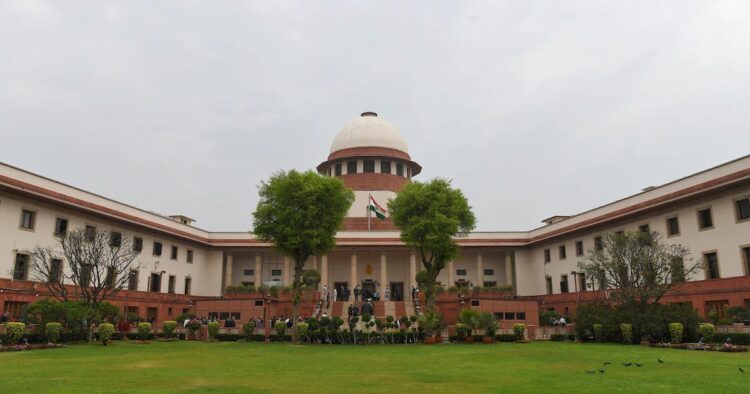The Supreme Court reiterated the Election Commission of India’s (ECI) authority in overseeing elections, emphasizing that it cannot issue orders challenging the efficiency of Electronic Voting Machines (EVMs) and Voter Verified Paper Audit Trails (VVPATs) based solely on suspicions or private reports.
Justices Sanjiv Khanna and Dipankar Datta, presiding over the case, highlighted the ECI’s responsibility in election management and stated that the court cannot interfere unless there are legal grounds to do so.
The bench pointed out that the court had previously intervened by mandating the use of VVPATs, and subsequently increasing the verification of EVMs with VVPATs from one to five in every assembly segment.
Despite some petitioners’ demands for 100% cross-verification or a return to the ballot paper system, the court maintained that it cannot alter the established process based solely on suspicions.
During the proceedings, advocate Prashant Bhushan, representing the Association for Democratic Reforms (ADR), expressed doubts related to the security of EVMs, particularly regarding the possibility of reprogramming or malicious malware due to the flash memory in their micro-controllers.
However, senior deputy election commissioner Nitesh Vyas reassured the court, explaining that the micro-controllers are programmable only once and are destroyed during manufacturing, addressing concerns over tampering.
While acknowledging the effectiveness of the current system, the court emphasized the need for greater transparency from the ECI regarding EVM functionality to allay public apprehensions.
The integration of VVPATs with EVMs, which was legally mandated after a petition by BJP leader Subramanian Swamy in 2013, has been a focal point of ensuring electoral integrity.
The batch of petitions before the Supreme Court has sparked significant public interest and political debate regarding the integrity of electronic voting via VVPATs. While some advocate for comprehensive verification processes, including counting all VVPAT slips, others seek to ensure voters’ ability to confirm their votes’ accuracy.
The Supreme Court has upheld the ECI’s authority over elections while acknowledging the importance of transparency and public trust in the electoral process.
The court’s decision, once finalized, will have significant implications for future electoral procedures, balancing the need for security and integrity with the demands for transparency and accountability.

















Comments